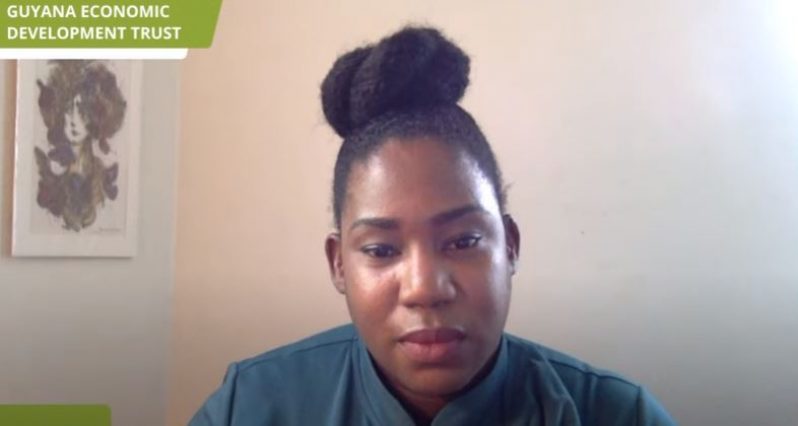– Says CARICHAM; places spotlight on Guyana’s oil industry, as Caribbean looks to leverage advantages of all countries
GUYANA’S burgeoning oil and gas industry is being spotlighted as CARICHAM advocates for the leveraging of individual economic advantages each Caribbean country has to offer for the post-pandemic recovery of the Region.
The Network of Caribbean Chambers of Commerce (CARICHAM), is a representative body for Chambers of Commerce across several Caribbean countries. It includes Guyana’s own Georgetown Chamber of Commerce and Industry (GCCI).
“It is important to leverage the different advantages that we have in the different countries to work along with Guyana, so that our Region as a whole can benefit,” CARICHAM Chairperson Lizra Fabien said in response to a question posed by this newspaper on the role of Guyana in the Caribbean’s post-pandemic recovery plan. She was speaking at an online forum organised by the Guyana Economic Development Trust.
The CARICHAM Chairperson acknowledged that Guyana has its oil industry now, which has been drawing much attention to the country. Cognisant of that, she explained that the attractiveness of the potential of that sector can be tapped as a means of attracting Caribbean investors. These investors, she reasoned, can be used to support the ‘growth of oil’ in Guyana and their involvement in Guyana’s oil industry would lead to benefits for their home countries.
With more Caribbean involvement in Guyana’s industry, she posited that more opportunities will be created for all stakeholders. Additionally, she advanced that there will be more capital available to strengthen intra-regional linkages in trade and logistics, for example.
According to the World Economic Outlook Report published by the International Monetary Fund (IMF) on June 24, the real Gross Domestic Product (GDP) of Latin America and the Caribbean is expected to have a negative growth rate of 9.4 percent in 2020. In 2021, however, real GDP for the same Region is expected to be 3.7 percent. It has been well reported that Caribbean islands, which depend largely on tourism, have been adversely affected by the COVID-19 pandemic.
The situation the Caribbean is confronted by presents an opportunity for more intra-regional development, Fabien posited as well. She explained that the very same ‘leveraging’ of individual advantages can be used in meeting the demand and supply needs of countries.
She said that CARICHAM has been discussing how logistics, transportation, and the people and skills in the Caribbean can all be utilised.
“I think it would be a great opportunity if we could leverage the oil to boost other sectors within the Caribbean and use that opportunity to be able to ensure that our Caribbean is more sustainable [and] we depend less on the resources out of the Region, but also to build each of our countries together with Guyana,” Fabien said.
Fabien also asserted that as the Region looks to recover from the effects of this pandemic, regional integration must also be one of the foremost concerns. She was supported on this point by former Director of Economics at the Caribbean Development Bank (CDB), Dr. Justin Ram.
Unfortunately, Caribbean integration has remained largely elusive. Dr. Ram highlighted that this is because some countries are more interested in regional integration than others.
Dr. Ram explained that individually, Caribbean countries have small populations, and to promote greater intra-regional development, the Caribbean needs to be considered as a “single economic space.” This is just one important reason for regional integration.



.jpg)








